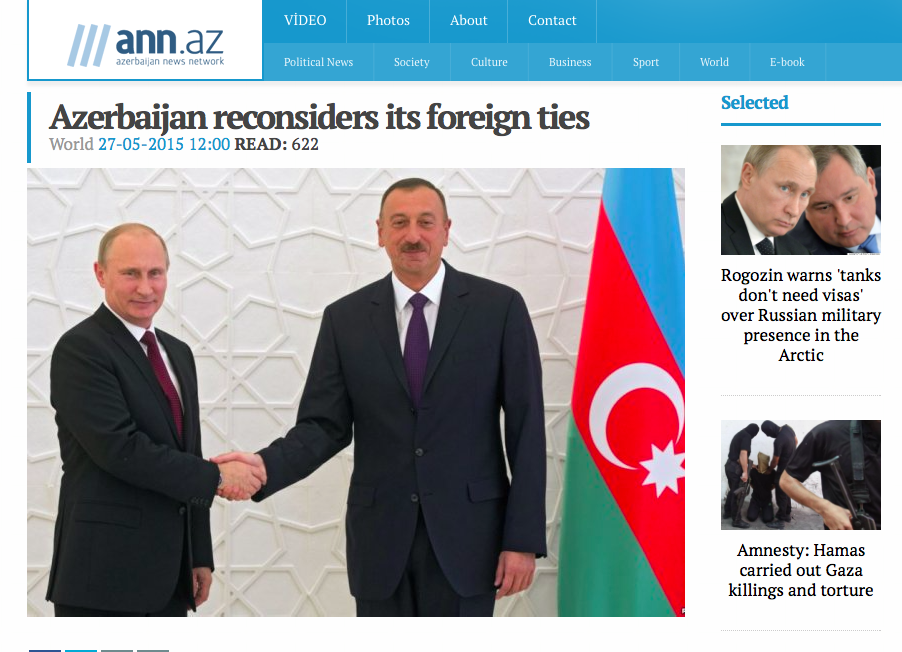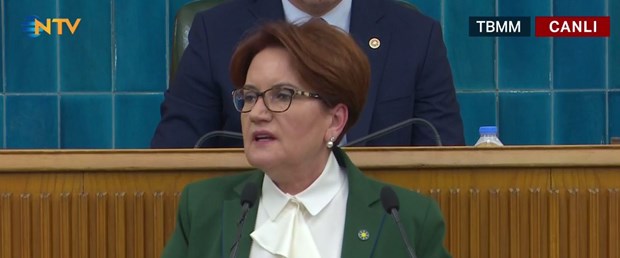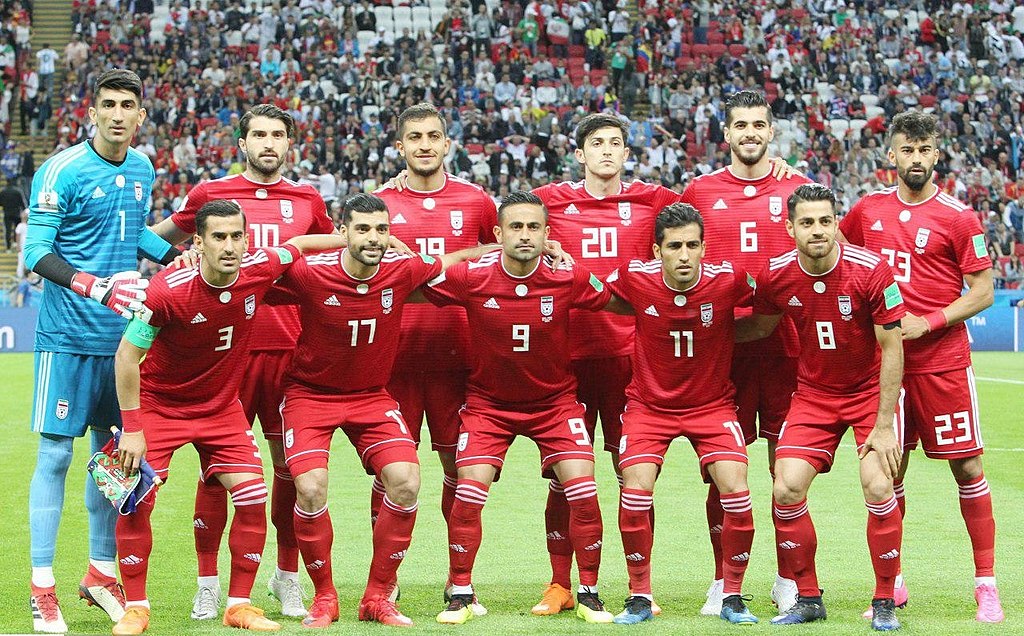STRATFOR: Azerbaijan reconsiders its foreign ties

ANN.AZ – May 27, 2015
(Stratfor) – Although it has gone largely unnoticed by mainstream media, Azerbaijan has recently been at the center of a diplomatic frenzy, with Azerbaijani officials meeting around the clock with their Russian and European counterparts. Azerbaijani Foreign Minister Elmar Mammadyarov was in Moscow from May 24-26, where he not only met with his Russian counterpart, Sergei Lavrov, but also Duma Speaker Sergei Naryshkin and Deputy Prime Minister Dmitry Rogozin, two key figures within the Kremlin power circle. Conversely, Mammadyarov attended the EU Eastern Partnership summit in Riga from May 22-23, where EU officials played up Azerbaijan’s importance to the European Union.
Azerbaijan has long been considered a crucial swing state in the competition for influence in European and Eurasian borderlands, both in terms of its location and its wealth of energy resources. However, Baku’s importance has increased exponentially as a result of the standoff between Moscow and the West over Ukraine, which has brought Russia-West relations to the their lowest point since the end of the Cold War. During this time of conflict, Azerbaijan is the only state in Eastern Europe and the Caucasus that has maintained neutrality; Ukraine, Moldova and Georgia are seeking integration with the West, and Belarus and Armenia are pulling closer to Russia. As Eastern Europe has become divided, Baku has become the target of intense pursuit by both powers.
While Azerbaijan has long been active in talks with Russian and Western officials as part of its attempt to balance between both sides, the tone and nature of recent meetings seems to have shifted more toward Russia. One indicator of this shift was Azerbaijani President Ilham Aliyev’s attendance at the Victory Day ceremony in Moscow, the same ceremony many Western leaders boycotted and framed as a gathering of Russia’s most loyal allies. Russian President Vladimir Putin was quick to reciprocate, announcing that he would attend the first European Games to be held in Baku in June. In addition, Putin awarded the Order of Merit to Azerbaijan’s Ambassador to Russia, Polad Bulbuloglu, for his contribution to “strengthening friendship and cooperation between Russia and Azerbaijan.”
Amid these public displays of affection between Azerbaijan and Russia, the opposite could be observed between Azerbaijan and Europe. President Aliyev cancelled his attendance at the Riga Eastern Partnership summit just days before the event, insisting instead that he had to attend preparations for the European Games. It was a curious reason, given that the European Games were still weeks away, and can be interpreted as a slight, given that Aliyev had already been included in the official EU press release of the summit attendees.
There are several possible reasons for Azerbaijan’s uncharacteristic behavior, which has a history of observing diplomatic niceties. One is a recent barrage of criticism from Western media and nongovernmental organizations about human rights, media freedom and democracy in Azerbaijan. Although the Azerbaijani government has been subject to criticism in the past, the timing — so soon before the high-profile European Games — has seemingly made Baku more sensitive to such reports. Certain Azerbaijani officials have said these Western groups are trying to undermine and bring down the government. Some officials even accused U.S. Secretary of State John Kerry of organizing these efforts. The U.S. State Department has vehemently denied the accusations, but a rift between Baku and the West over the human rights issues nevertheless seems to have widened, with Mammadyarov blaming the West for “Cold War style propaganda.”
Another possible reason for the shift in Azerbaijan’s diplomacy is the Nagorno-Karabakh conflict between Azerbaijan and Armenia. The frozen conflict over the breakaway territory has heated up over the past year, with cross-border shootouts and raids around the line of contact intensifying in scope and frequency. Azerbaijan in particular has become more assertive militarily, as evidenced by the downing of an Armenian helicopter and increased casualties incurred by Armenian forces. Meanwhile, Yerevan has been surprisingly restrained in its actions on the battlefield.
Russia, which serves as Armenia’s security guarantor and stations 5,000 troops in the country, has also demonstrated restraint, calling for calm between the two sides without being overly critical of Azerbaijan. This laxness could be explained by Russia’s focus on the conflict in eastern Ukraine, or by Moscow’s attempt to maintain leverage over Armenia and Azerbaijan by keeping the conflict alive. However, the Russian response could be an emerging understanding between Moscow and Baku that frees up Azerbaijan to be more aggressive without incurring substantial blowback from Russia.
Still, Azerbaijan’s diplomatic behavior should not be confused with a strategic reorientation toward Russia at the expense of the West — at least not yet. Azerbaijan is still interested in using its energy supplies to balance between Moscow and the West, and the standoff over Ukraine has only increased its attractiveness to the Europeans as an alternative to Russia as a natural gas supplier. Baku has been courted ardently to take part in Southern Corridor energy projects, particularly the Trans-Caspian pipeline, which would link Azerbaijan with even greater volumes of natural gas from Turkmenistan, Iran and other countries in the region. Unlike its underwhelming participation in the Eastern Partnership summit, Azerbaijan has been understandably active and engaged in discussing future energy ties. Such projects would be favorable not only to the country’s economy but also to its diplomatic and geopolitical position.
In light of these European energy pursuits, Russian officials have stated that Moscow is more open to working out legal differences over maritime boundaries in the Caspian Sea — a key hurdle to a project like the Trans-Caspian pipeline. These statements could be yet another indication that Russia is trying to smooth over another sensitive issue, just like Nagorno-Karabakh, to pull Azerbaijan closer to its orbit. Or, Moscow could still be trying to influence the project, since the Trans-Caspian pipeline is specifically designed to circumvent Russia. Baku may be willing to at least partially entertain that option, to the West’s dissatisfaction.
Of course, talking about something is not the same thing as following through, and Azerbaijan has not yet made any concrete decisions to abandon its balancing strategy. But Baku and Moscow’s decisions and statements bear close watching. They will have implications not only for Azerbaijan but also the broader regional and global standoffs between Russia and the West.
























